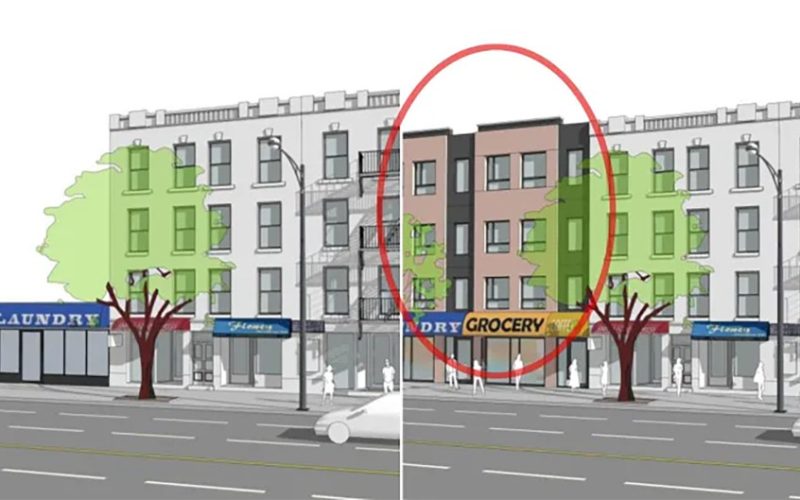The City Council voted 31-20 to pass a set of sweeping housing reforms intended to create some 80,000 homes over 15 years — clearing the final major hurdle Thursday.
The plan, spearheaded by Mayor Adams and the Department of City Planning, is intended to spur the creation of “a little bit more housing” in every corner of the city and has been touted as a solution to the city’s dire housing crisis.
City of Yes for Housing Opportunity, known as “Zoning for Housing Opportunity,” was unveiled by Adams last September and described as a much-needed overhaul of antiquated zoning rules worsening the ongoing housing situation. Rent prices have skyrocketed and the city’s vacancy rate is at a historical low.
The plan will update decades-old zoning rules that dictate what can be built where, allowing for some 80,000 units to be developed over the next 15 years. That will also come with $5 billion in infrastructure and affordable housing funding secured last month by Speaker Adrienne Adams during prolonged City Council negotiations.
“This represents a major step forward for the city to confront our housing crisis,” Speaker Adams said at a press conference shortly before the vote.

Thursday’s vote came after months of contentious review by community boards and others during the city’s land use process. The plan eked by a subcommittee and committee vote late month after down-to-the-wire talks that resulted in a modified version of the original plan that relaxed some of the original requirements.
“City of Yes” has faced fierce resistance since its introduction last year from more suburban, development-averse outer borough pockets — areas where support for Mayor Adams is otherwise usually strong.

Luiz C. Ribeiro for New York Daily News
New Yorkers share their views at a City Council hearing Tuesday, Oct. 22, 2024, reviewing the Adams administration’s sweeping “City of Yes” plan. (Luiz C. Ribeiro for New York Daily News)
A main concern — and a major sticking point for council members from car-reliant areas — was a measure that would have lifted minimum parking requirements citywide without actually doing away with parking. The latest version includes a three-tiered model where parking mandates will either remain unchanged, be reduced or be lifted altogether.
Another component allowing for accessory dwelling units such as converted garages and attics was also tweaked to include carve-outs for those in flood-prone areas and others.

The Council also secured $5 billion in funding commitments from the city to boost affordable housing and infrastructure in tandem with the expected development influx, something Speaker Adams had been calling for.
Mayor Adams said Tuesday the concessions made to push the plan over the line didn’t dampen the success of the plan: “There’s so much you can hit me on. Give me my wins.”

Ed Reed/Mayoral Photography Office.
Mayor Eric Adams holds an in-person media availability. City Hall. Tuesday, October 29, 2024. (Ed Reed/Mayoral Photography Office.)
The housing plan was the final component of the three-pronged City of Yes plan. The other two parts were aimed at curbing carbon emissions, passed last December, and the second, focused on business development, was passed in June — both with significantly less fanfare.
Originally Published:








